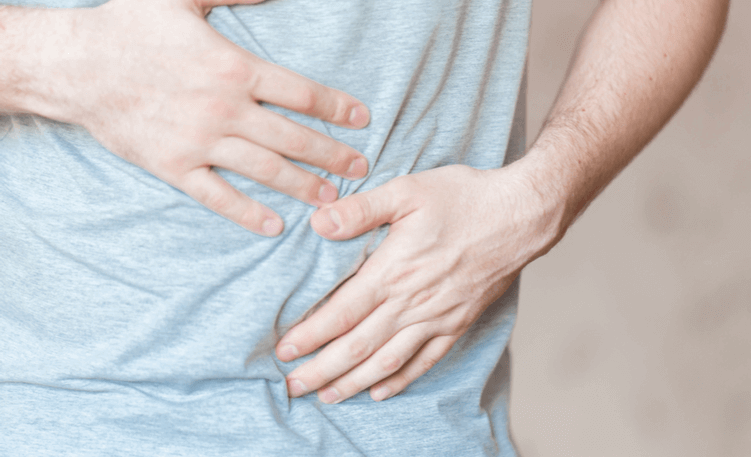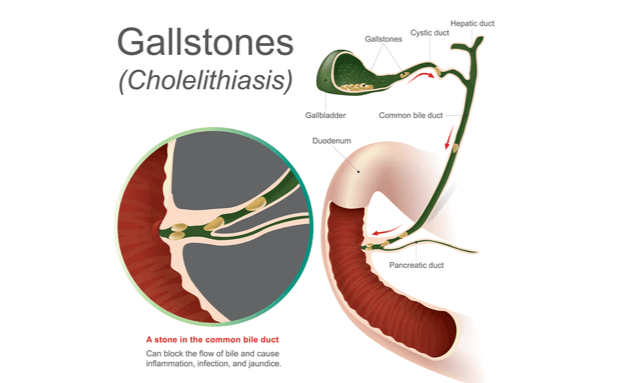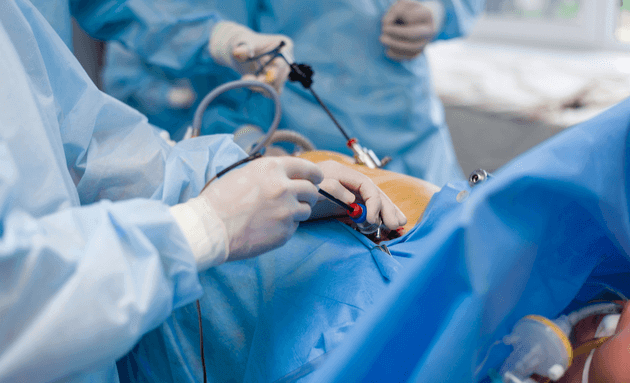How To Recover From A Gallstone Surgery?

Gallstones are hardened digestive fluids that form in your gallbladder. The gallbladder is a digestive organ that is present right below the liver. It stores a digestive fluid called bile which is released into the small intestine, and aids in breaking down food for better digestion.
What Causes Gallstones?

Gallstones can occur due to genetic factors, lifestyle factors (obesity, high cholesterol, poor diet) or any other history of gallbladder ailments. Sometimes, you won’t even realise you have developed them unless they block a bile duct and cause intense abdominal pain.
There are two kinds of gallstones, Cholesterol Gallstones and Pigment Gallstones. The former are formed due to undissolved cholesterol in the body. They are the most common type of gallstone and are usually yellow-green in colour.
Pigment stones, on the other hand, are formed when your bile contains too much bilirubin. Bilirubin is an orange-red pigment that is formed when your red blood cells break down, and is indicative of many diseases in your body. Pigment stones are smaller and darker and not very common.
Is Surgery The Only Way?

Gallstones are accompanied by excruciating pain in the upper right abdomen, and requires immediate medical attention. Surgery is not the first calland other options are tried before like dissolution by medication. However if one of the stones blocks the bile ducts or non-surgical methods are unable to solve the condition, surgery needs to be done.
It is a common surgery where the gallbladder is removed and and there are two types of procedures for it. The first is the classic Open surgery, where and incision is made and gall bladder removed. The second is the Laparoscopic Cholecystectomy, which is less invasive.
How To Recover From A Gallstone Surgery?
Gallstone surgery is not a complicated procedure, and a person typically takes 6-8 weeks to fully recover. Plan ahead for your recovery after the surgery to make the journey as less painful as possible.
Here are some of the things you should keep in mind for after the surgery:
- Physical Changes: Right after the surgery, you may be asked to stay at the hospital for a night or two. It’s best to be under observation to avoid any complications. Have a family member or friend drive you back from the hospital, and avoid walking too much or indulging in any strenuous work
- Diet: Your doctor may recommend shifting to a liquid or bland diet for the first couple of days. It’s advised to start with simple vegetables, and avoid salty, spicy, or fatty foods. After a few weeks, you can slowly get back to your usual food habits, although keeping a check on it will do no harm
- Portion Control: Shift to eating smaller meal portions and stick to a low-fat diet and gradually add high-fiber foods such as nuts, pulses, cauliflower, cabbage, and cereals. Reintroducing these foods quickly can lead to diarrhea, so make sure you take time to get back
- Wound care: The stitches made to your abdominal area are usually dissolved, but they need to be kept clean. Shower after the bandages have been removed, and keep an eye out for any bleeding or redness. Any sign and you should consult your doctor. Bruising around the wound is sometimes normal, so there should be nothing to worry about
- Work Life: Most patients can return to work after a couple of weeks, provided they don’t indulge in any hardcore physical activity. If you feel you need more time to recover, ask your doctor to share a letter of excuse from work
- Bowel Habits: Your usual bowel habits may be altered due to several reasons. It could be medicines, the anesthesia, or decreased activity. Constipation is common. Be sure to add high fiber and liquids into your diet as soon as possible, to regain the momentum

As with every other surgical procedure, there may or may not be complications. Most patients feel fine after the surgery and recover within a couple of weeks. Your doctor will speak to you in detail about the procedure and steps for recovery before the surgery. In case of any queries or doubts in your mind, feel free to openly discuss it with your doctor before taking a step or making any assumptions.






